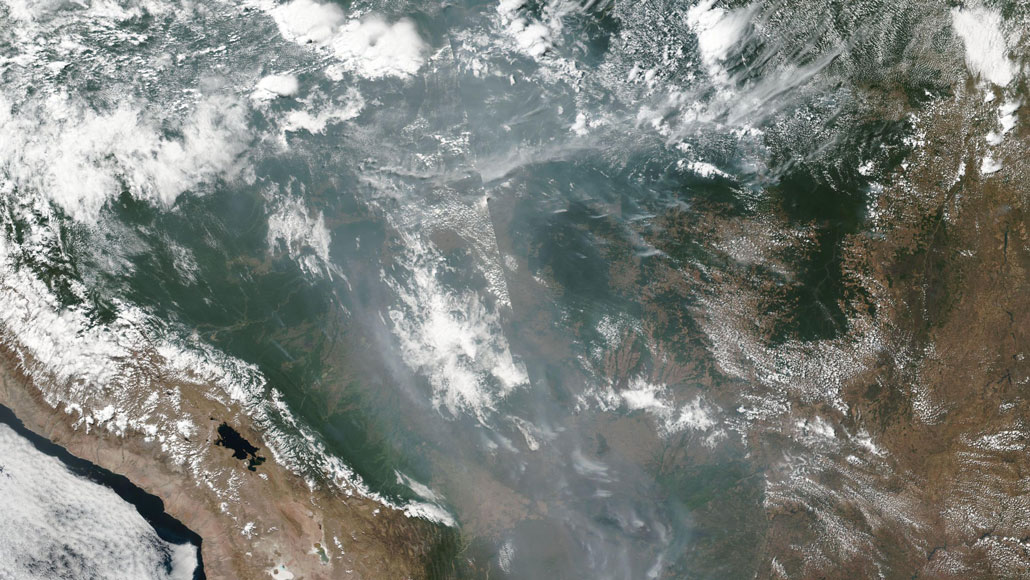
Smoke from thousands of fires burning in the Amazon can be seen by satellites in space. This image was captured over the Brazilian rainforest on August 22.
NASA Worldview, Earth Observing System Data and Information System (EOSDIS)

Smoke from thousands of fires burning in the Amazon can be seen by satellites in space. This image was captured over the Brazilian rainforest on August 22.
NASA Worldview, Earth Observing System Data and Information System (EOSDIS)